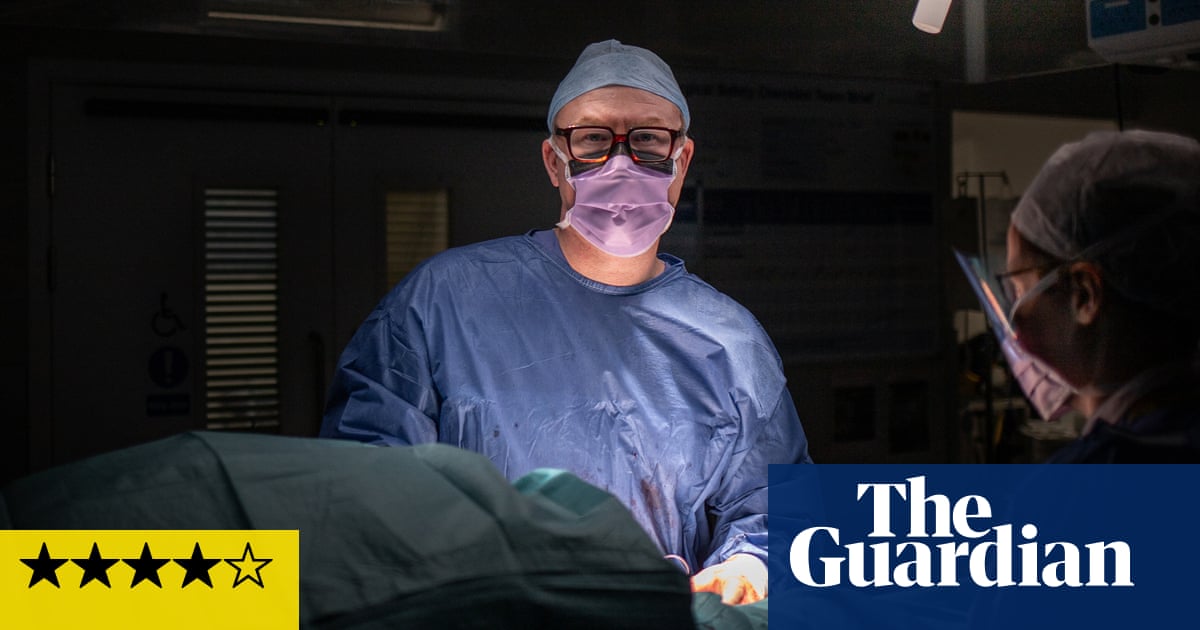Ithink – TV historians, please correct me if I am wrong – the great British love affair with the behind-the-scenes hospital docuseries began withJimmy’s, which followed the staff and patients going about their business at St James’s University Hospital, Leeds. It was warm and lovely and life-affirming, with a bit about the pressures Thatcherite reforms were placing on everyone thrown in to cut the schmaltz. And that has been the template ever since. Focus on the good while acknowledging the bad, and keep the ratio as positive as you can without being accused of Pollyannaism.
To my knowledge, 999: The Critical List is the first of its kind to show a doctor losing control in front of a patient. It is as revealing a sign of where the NHS is now as any waiting list statistic. It comes when Julie, a patient in terrible pain from a perianal abscess caused by her chronic bowel disease, is told by registrar surgeon Oladele Situ that she has to wait yet another day for surgery as she has been displaced again by people in even direr need. Resources do not permit anything like enough operations, even in awful circumstances, to be done per day. “When do we get to the point that I’m prioritised?” she cries in distress. “We understand,” says Oladele. “We apologise.” It is heartfelt. The stress already audible in his voice evolves into desperation as he assures her, “We have been on our feet all day. We are stretched to the thinness. But never think that you are not important to us … You are the reason we come to work every day.” By the end his voice is cracking. He seems to be on the verge of tears.
999: The Critical List shows you why. It concentrates on the emergency list at the Royal Blackburn Hospital, an ever-evolving document comprising the sickest people in the hospital plus any A&E admissions who need immediate, lifesaving surgery in Theatre Six. The list is a work of science plus art, as purely clinical need is tempered by other factors such as age, the length of surgery and any other of the myriad special considerations that dealing with human beings in their most vulnerable states can throw up.
The stories of the patients filmed by the crew – from the parents of a child with Rett syndrome who are on the verge of collapsing with grief as she is taken to theatre, to returning patient Tanzeen, whose drug addiction has led to needles broken off in his neck but who is also in abdominal agony and losing drastic amounts of weight, to 61-year-old Vanessa who would rather die than face months in ICU after a major operation – are given their time and their dignity. But the focus is really on the doctors, nurses and other staff who are juggling resources and trying, ultimately, to do the impossible – treat everyone in good time and expose them to minimal risk in a vastly understaffed and materially deprived environment.
“It’s an unmanageable workload,” consultant surgeon Nick Heywood says, the energy for equivocation clearly long past. “It feels like you’re trying to fix a broken system while working.” “We are sinking,” says list coordinator Nikki Tingle. “The NHS is. I don’t know how we are going to climb out.” When she started work in 1997 the list used to take half a day to clear. Now patients are routinely waiting until the next day or the day after that. The situation is aggravated, she says, by the increase in the number of patients with mental health issues – especially those who have not been able “to get back into the run of the world … of looking after themselves” since the pandemic.
It is rare that doctors are shown swearing in frustration, even in documentaries more tightly focused on the problems in the NHS than this one. But there are many such moments here, as the number of equally critically ill patients demands the kind of decision-making no human should have to make as part of a standard working day. Operations are halted because there are no beds on wards to which they can move recovery patients, other doctors are begged from other hospitals, snatches of time from other theatres are borrowed, and the goodwill and last vestiges of energy are sapped from people hours past the ends of their shifts. Stretched to the thinness indeed.
999: The Critical List is on Channel 4 now.
